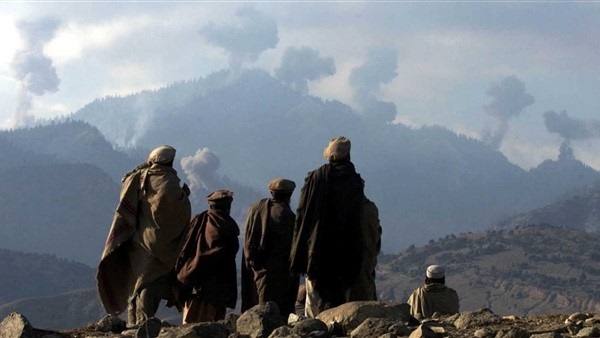Iran fears growing dangers of ISIS Khorasan

A new crisis between Iran and the Taliban movement has
erupted due to the growing dangers of ISIS Khorasan, which increased after the
Taliban took control of Afghanistan in August 2021, as the borders between the
two countries reach more than 900 kilometers. This comes amid security
disturbances in many of the border areas in Iran and the possibility of ISIS
exploiting these disturbances with its safe incubator in Afghanistan due the
Taliban government, which does not have a firm position on the terrorist
organization and its internal influences on neighboring countries.
Iranian objection
In statements to state television, Iranian Foreign Minister
Hossein Amir-Abdollahian expressed his country's anger at the growing threats
of the terrorist organization on the Iranian borders.
Amir-Abdollahian said that the biggest dilemma currently
facing Afghanistan is the spread of terrorism, adding that it is no secret that
ISIS leaders and experienced members have been transferred to Afghanistan from
Iraq, Syria and parts of Libya in recent months, which is one of the challenges
facing the Taliban government in Afghanistan.
“We have clearly announced to the Afghan authorities, and I
have clearly informed acting Foreign Minister Mulla Muttaqi that no group in
Afghanistan has been able to manage a stable political system without the
participation of other ethnic groups, so the formation of an inclusive
government with the participation of all is a necessity and should not be
postponed,” he continued.
Taliban objection
Those statements by Iran's foreign minister sparked a state
of objection among the Taliban leaders in light of
the great differences between the two countries, which amounted to armed
clashes between them due to the conflict over water.
Abdul Qahar Balkhi, spokesman for the Afghan Foreign
Ministry, tweeted on Saturday, July 22, “If Iran has any intelligence that ISIS
members have been transferred to Afghanistan, we hope they share it so that the
Afghan security forces can take the necessary steps,” adding that the Islamic
Emirate of Afghanistan fought meticulously against ISIS during and after the
end of the occupation.
Balkhi called on the Iranian authorities to take a constructive
stance on economic, political and social issues.
He added that the Taliban government will not allow anyone
to threaten the security of the country or use Afghan territory against others.
Hesitant attitude
Since the arrival of the Taliban to power, it has been
deliberately ignoring the influence of ISIS. At times it refuses to acknowledge
the existence of the terrorist organization’s strong influence on Afghan soil,
and at other times it hints at the danger of the organization on Afghan
security and the ability of the Taliban government to interact with the
organization.
The differences in the Taliban’s positions towards the
terrorist organization are due to two reasons:
First: When the movement is faced with the dangers of
the organization on internal security and on neighboring countries, it resorts
to refusing to acknowledge the existence of the organization’s influence on
Afghan soil so that it is not accused of providing its members with a safe
haven, which is a naive justification if compared to the organization’s
operations on the ground, which are frequently target Taliban members, active
leaders, and senior officials, including the killing of the governor of Balkh
two months ago, in addition to the targeting of soldiers and ministers from the
movement.
Second: The movement maintains the file of ISIS
dangers as one of the justifications for the important files with which it
pressures the international community in order to
obtain international recognition. When the movement finds that things are not
going in the direction of recognizing its government as representative of the
Afghan people, it puts the scarecrow of ISIS in front of everyone in order to
deal with it as a recognized government so that it can form an army or conclude
military deals with abroad that will enable it to obtain whatever weapons it
wants.
This hesitation raises the fears of neighboring countries
about the growing dangers of ISIS Khorasan due to the Taliban's lack of
decisive recognition of those dangers, thus allowing the organization to wreak
havoc in Afghanistan in the near future and
transform it from a mere province into a center for its administration instead
of Syria and Iraq.









